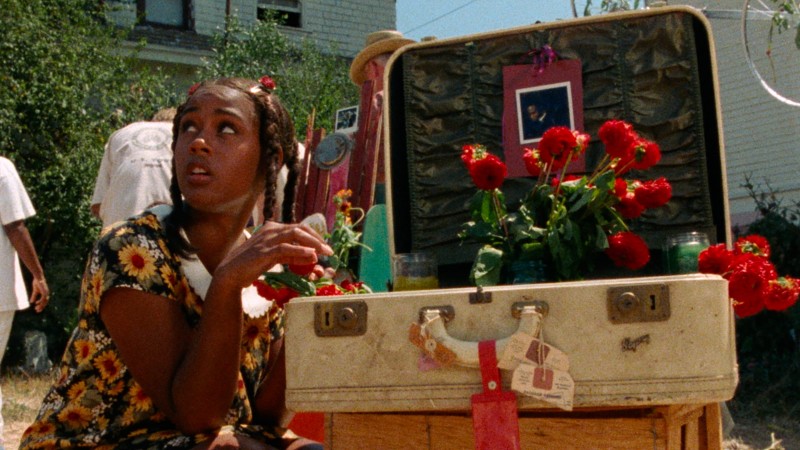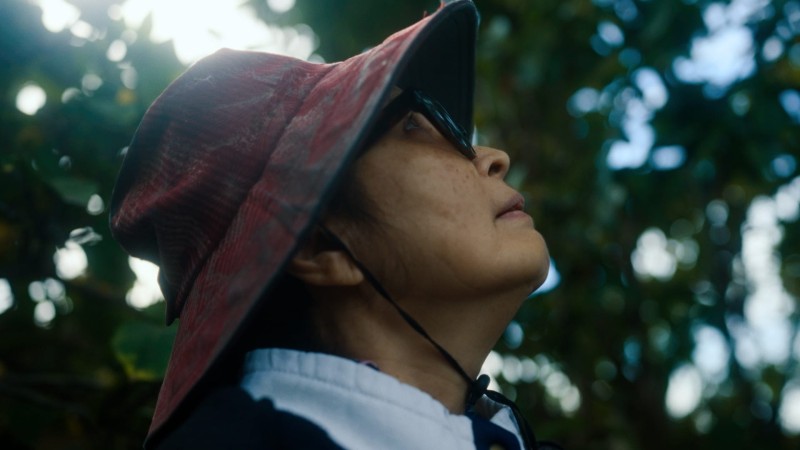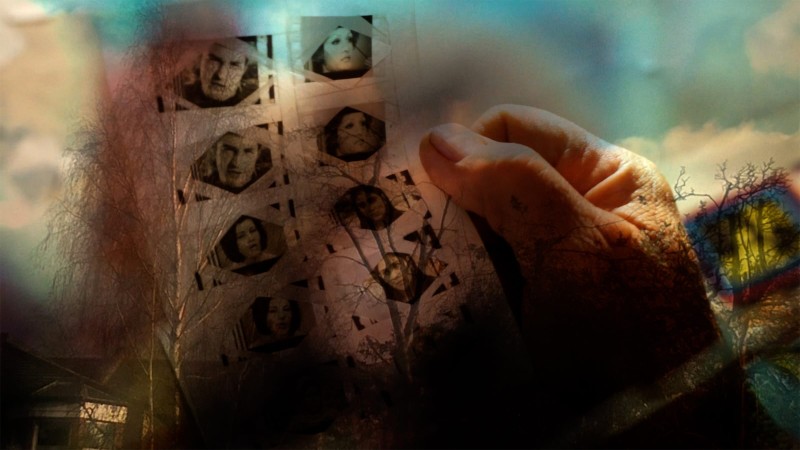Hou Hsiao-hsien on the Films That Changed His Life


It’s been seven years since the release of Hou Hsiao-hsien’s film Flight of the Red Balloon, and the Taiwanese auteur is finally back with his long-gestated epic The Assassin, which had its U.S. premiere at the New York Film Festival earlier this month, ahead of a theatrical release last weekend. Winning him the best director award at Cannes earlier this year, The Assassin is an awe-inspiring take on the wuxia film, a traditional Chinese martial-arts genre, and stars his longtime muse, actress Shu Qi, as a ninth-century woman who was abducted at an early age and trained as an assassin, then sent back home to kill the man she once loved. Tackling a historical swordplay film may have been a departure for Hou, who’s best known for his beautifully observant portraits of everyday life, but that didn’t stop him from taking on the tradition and making it his own. “I was always going to bring a sense of realism to the genre,” he told me during a recent interview, “and because of that, I was able to create my own limits—and as a filmmaker, creating limits is actually quite freeing.” Shot on 35 mm film, The Assassin stunningly captures the visually rich days of the Tang dynasty—from candlelit interiors draped in gauzy fabrics to the lush, sweeping Chinese landscape—and provides an emotionally evocative immersion into the period.
Over the past three decades, Hou has carved out a unique path as an artist, but he readily acknowledges his debt to filmmakers of earlier generations. During the New York Film Festival, he sat down at Lincoln Center with Kent Jones, the festival's director of programming, to discuss (and show clips from) the films that have shaped his life. (“I’m so impressed by these older films,” Hou had said to me the previous day. “I think maybe if I'd existed in that period I wouldn’t have been able to break through and become the filmmaker that I am.”) Over the course of their discussion, which was conducted in English and Mandarin (Hou's remarks were translated by CUNY professor Vincent Tzu-Wen Cheng),Hou's examination of the films that had inspired him became a way to explain how cinema had allowed him to transcend his rebellious youth and become the director he is today. Here are some edited and condensed excerpts of his comments from that talk.
On postwar European cinema, Breathless, and hanging out with Edward Yang:
When I was young, a group of filmmakers and I would hang out at Edward Yang’s home. It was a Japanese-style home, and we’d be sitting around on these Japanese mats. At the time we weren’t young in age, but we were young as filmmakers, so we felt very fresh, very eager, and very ambitious about the films we were about to make.
The films that we watched had been made after World War II in different countries. So you had films being made in Italy with neorealism, including Bicycle Thieves. In France you had Godard with Breathless and François Truffaut’s The 400 Blows, and in Germany you had this new cinema with Rainer Werner Fassbinder. These were films we would watch and discuss. We were all filmmakers who had gone abroad to study film, but Yang was an anomaly because he had actually studied science, and was working with computers, but gave up those practices to make films in Taiwan.
Breathless definitely had a huge influence on how I put together my film The Boys from Fengkuei—and while I was editing this film with my collaborators, we actually saw Breathless. It really inspired us to incorporate jump cuts into the editing process, because in the past, the conventional way was to start with a long shot and end up with a close-up. But here, with the exact same position, you can do these jump cuts to somehow bring out the emotions of the characters and the stories you want to portray.
On Yang's A Brighter Summer Day and watching actors eat:
When we were hanging out and talking about what we were going to make as filmmakers, one thing we agreed on was that we would make our own stories from our own perspectives and that we would depict reality. A Brighter Summer Day actually came from Yang's own personal experience, plus a very sensationalized news story at the time about this particular incident. And you can see Chang Chen, The Assassin’s lead actor, in this film. He was fourteen years old at the time and already very good-looking.
I still always think about making my films in a way that honors the concept of realism. At the time, actors—whether they were professional or nonprofessional—didn’t really act the way I wanted them to act, in a very realistic way. In order to get that, I had to create a realistic environment for them, so they could immerse themselves into the characters and do the things I wanted them to do. One of my favorite things to get actors to do is eat. So if it’s a scene about eating, I will actually film when it’s time to eat, to make sure they will be hungry. And I will have catering in and have them eat very freshly made food at the table. And then while they’re eating in their natural state, I will remind them that this character is going through something that is very depressing, something is bothering him or her, and then hopefully they will make that adjustment while they’re eating.
On Mikio Naruse’s Floating Clouds and sneaking into movies:
The reason I selected this film is because I find it very familiar. I grew up in a house that was Japanese, in terms of its design and architecture, and also you may know that Taiwan was occupied by Japan for fifty years. So a lot of the things I observed from Naruse’s films were very familiar to me growing up. This film is all about what happened after the Second World War, when people were feeling a sense of hopelessness. The story is just so bleak and so touching at the same time. As a director, Naruse has the ability somehow to depict how human emotions in a relationship change because of society, in this case after the Second World War, with the sense of hopelessness. And these characters are portrayed so delicately and movingly on-screen.
For me personally, when I was young I knew how to hustle, and I got by just fine. I gambled, I sold household products or pawned them to get by. But even though I was sort of this petty thug at the time, I’d always been an avid reader of literature and a big fan of films, and I really think that these things guided me in such a way that I didn’t eventually go down to the end of that dark path that I easily could have. So I think the films and the novels were my saving grace and somehow brought me to where I am today.
You can’t imagine the lengths I went to, growing up, to actually see films. I remember that I would see every single film that was released and shown in the theater. I had to find a way to get in there. So when I was a boy, what I would do is pretend that I was someone else’s kid—I’d tug the shirt of an adult and pretend that I was with them so I could get into the theater for free. Then later on, in middle school, I was a bit bigger and could no longer pretend that I was somebody’s child to get into the theater, so I would collect ticket stubs on the floor and stick them back together, and then I would go to the theater and give that to the clerk. Of course, they didn’t pay attention to the details, so they would just take the fake ticket stub. Later on, when I was in high school and college, I did something more impressive: I would climb walls to go into the theater, or I would cut through fences to go see the films.
On Fellini’s Amarcord and breaking the rules:
I chose this film, not only because it’s a memory piece, but also because it’s very much about this particular little town—all the eccentric characters—and about families. I think it had a huge impact on my films, like A Time to Live, a Time to Die, and also inspired me to look back on my experience growing up and make films about that.
One thing in particular I remember that's connected to this film is from when I was shooting The Boys from Fengkuei. There was one character, the protagonist, who was in a brawl and took a brick, hit someone in the head with it, and then exited the frame on the left side. Then I directed him to come back again, go around, pick up some sticks and go into the fight again from the right side. This idea of frame out and frame in was not something we were supposed to do; we had been taught in film school that that’s not how you do it—you should come in and out from the same side of the frame. Fellini, and this film, really broke the conventional ways of doing things and taught me that you have freedom to do whatever you desire, which allowed me to transcend all those dogmatic ways of making films that I was taught in film school. This film had a huge influence on me, and I don’t think that’s something contemporary filmmakers will experience, because they probably already have those types of freedoms and don’t carry around those dogmas. But when I first started, these golden rules were almost like the Bible, and I just tried to break away from that.







